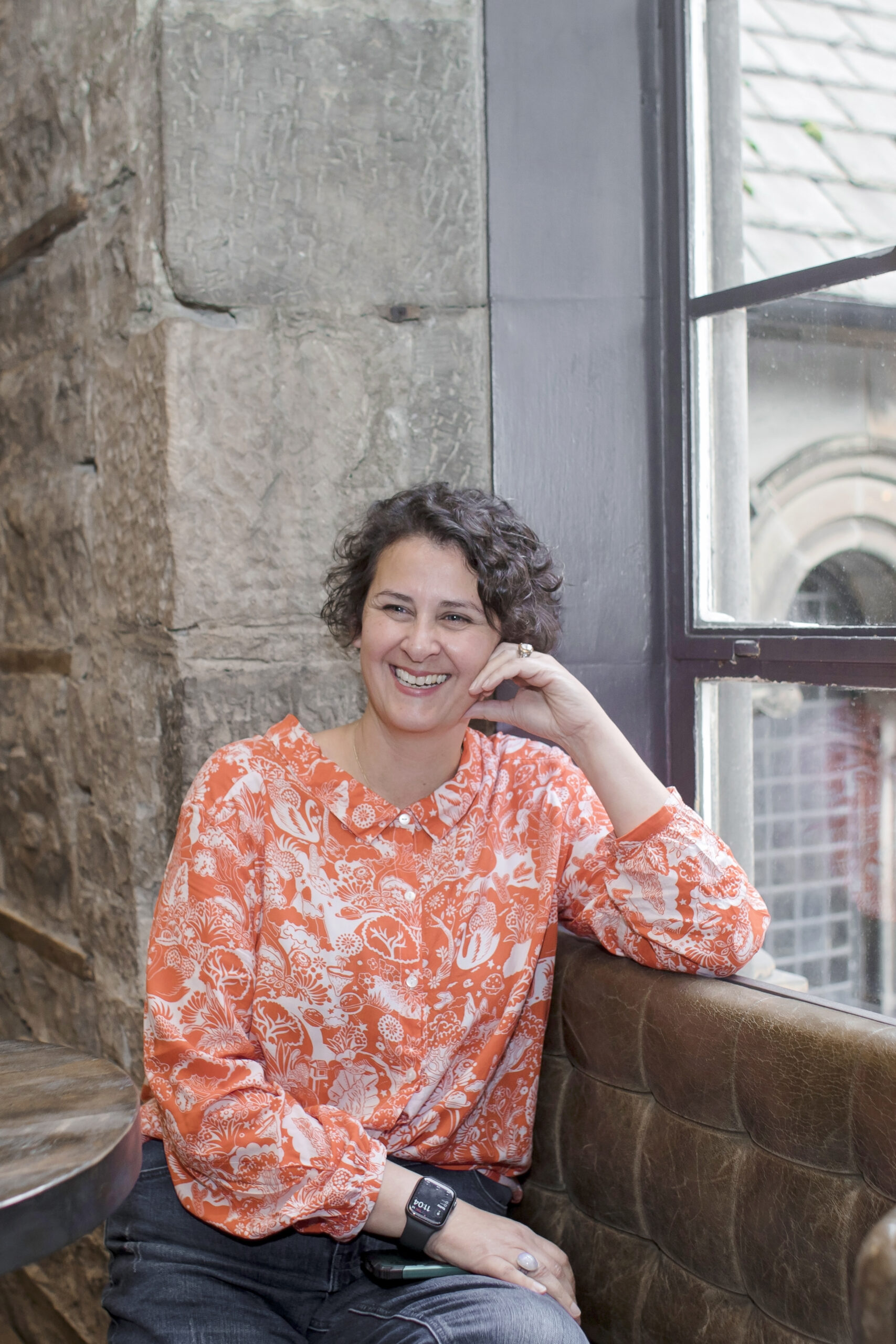Should I stop writing?
There will come a time in your writing life when you question why you’re doing it and if you should stop writing.
The writing life is such an unstable one. You don’t know if your current project has legs, is worth pursuing, or if anyone else will like it. And, if you’re still trying to finish your first novel, you are probably full of self-doubt and fear that you don’t have what it takes to write any novel, never mind a good one.
If you’re in that place right now – wondering if you should stop writing – this post will give you four reasons stopping might be the right next move for you.
Is it okay to stop writing?
Before we delve into the four reasons to stop writing, it’s worth stating up front that it is absolutely okay if you do stop.
You are not your writing. It doesn’t say anything about you as a person. Rather, if you do decide to stop writing, it’s a reflection of where you are in life and what you want for your future – not the quality of your writing.
Whatever you decide, it must be right for you and your life right now.
Four reasons to stop writing
You have a young family
Raising children is the hardest thing I’ve ever done because it is relentless and, if you’ve got babies who don’t sleep, toddlers who are ‘strong willed’ (read: a nightmare!) then it’s extra challenging.
It’s not until they sleep through the night and can do the basics for themselves (get dressed, brush their teeth, eat – who knew getting a child to eat would be so hard!) that you can start to carve out the brain space and energy to think of anything other than simply making it through the day.
Sure, there are women out there who can write while nursing an infant (Vicki Pettersson) but those women will be writers with a contract, a deadline and an advance they don’t want to repay their publisher.
If you’re writing your first novel, you don’t have those external obligations. It’s you and your muse and, when you’re exhausted and emotionally drained by the demands made by your children, spouse and paid employment, it’s no wonder creativity takes a back seat. It’s not a priority in your hierarchy of needs.
When my kids were little, I found it nigh on impossible to write. It wasn’t until they were in kindergarten that I could find 30 or 40 minutes to sit in a cafe and just think about my novel.
I mean that sincerely. I started off just thinking about my novel. Mulling things over (you can find more about that here).
If this is the stage of life you’re in right now, don’t feel you’re letting yourself down by focusing on getting through the day and snatching as much sleep as you can. You can return to your writing at a later date.
You’ve lost the love of reading
There’s a fine line between compulsively doing something that brings you joy and turning that into a job.
If you want to be a published writer, you’ve likely been a lifelong reader (although not always. Award-winning author of My Name is Leon, Kit de Waal, didn’t discover fiction until she was in her twenties). And it was that passion for reading that led to writing.
Because you now study storytelling and are analysing every book you read, novels have lost their magic and don’t give you the same pleasure they once did.
It reminds me of a friend of mine who was a golfer. He lived and breathed the game. Every spare moment was spent on the course, reading about golf and golfers and keeping up to date with the tours. He was also a really good player, so good he turned pro.
Sounds perfect, doesn’t it?
The trouble was, that hobby he was so passionate about and so good at, became his job.
The pressure was on to win every game and earn a living through the sport. That was his downfall.
He began to resent the game and the role it played in his life. In time, he returned to amateur status, went back to a 9-5 job and his love of the sport immediately came back. He still plays to this day.
Do you recognise this in yourself? Have you switched off from fiction because it’s now a job with the associated pressures? If the answer is yes, perhaps it is time for you to stop writing.
The thrill has gone
You’ve been writing for decades, always with the ultimate aim of writing a novel. You’ve started lots of projects over the years. Perhaps you’ve even been working on the same book for as long as you can remember and now you’re over it.
When you take a moment to reflect on your writing and what it means to you, you realise the moment has passed. The passion and thrill you once felt for writing has died a long, slow death and, in fact, your energy and enthusiasm lies elsewhere.
Life has moved on.
There’s no shame in that. Your life goes through seasons. Perhaps fiction writing was an antidote to the academic work you did as a student, or light relief during your working years. Maybe it was escapism when your children were young, or even a dream your parents had for you.
Writing has been part of your identity for so long now it’s hard to imagine life without it. If you stop writing, you’ll feel like a failure or that you’re giving up on yourself when the opposite is true.
When you let go of something that feels like a millstone around your neck, you are setting yourself free.
I used to feel that way about cigarettes. I had smoked for so many years, I couldn’t imagine who I was without them. Those little sticks of tobacco were an extension of my hand and had been my faithful friends for decades. When it came time to stop smoking and move on to a new season of life, I had to update how I saw myself.
Is it time for you to do the same with writing, now that the thrill has gone?
It’s not worth the cost
Writing your first novel, or indeed any novel, comes with associated costs: emotional, time and financial.
You know yourself there is a whole heap of emotion poured into the novel you’re writing. When you’re on a roll, it takes over your mind completely. It’s the first thing you think about in the morning and the last thing you think about at night.
In that phase of writing, you cannot wait to get to your desk and pour the words onto the page. It feels marvellous and almost frenzy-like in how you pour those words onto the page.
Alternatively, there are periods where you don’t want to go near your writing. And the emotion that comes with that is guilt and shame. It can burn into you and leave nasty scars of self-reproach and recrimination.
It also takes time to write a novel. If you want to get to the end of a draft or rewrite, you need to prioritise your book above almost everything else, so time that you might normally spend doing other things or spending with other people, you in fact spend on your own at your desk with the characters in your book.
This does mean that, for a temporary period of time, other things take a back seat and only when you’ve finished your draft can you reapportion some of that time to the other areas of your life.
And, of course, there is a financial cost. If you are going to publish your books, there’s the cost of working with a coach, hiring an editor, finding proofreaders and beta-readers. If you are self-publishing, there is also the cost of finding a book cover and marketing that book.
You might now be at a time in your life where it’s no longer worth it. The cost is too high for you right now and you would much prefer to do other things.
Again, there is no shame or embarrassment to be had around this. Instead, acknowledge that it’s not a priority to you anymore and instead take that emotion, time and finances and use them in other areas of your life that give you more joy and do feel worth the cost.
Final thoughts:
As you can see, there are at least four reasons you might want to stop writing. Perhaps there are others that are not mentioned here. But for whatever reason you decide to stop writing, please know that it doesn’t mean you’re a failure, it doesn’t mean you don’t have what it takes or you don’t have the talent. What it means is your life has moved on in other directions and other areas.
At one stage of my life, I was an actor and I couldn’t envisage my life any other way. I later trained as a librarian and thought that would be my future. I then thought I was going to be a property magnate, but that was short-lived. Now I’ve found my calling in life and I’m in the right season of life for it. My children have grown. I still love reading and it gives me a thrill every time I finish a new chapter.
Writing my novels is still worth the emotion, time and financial cost.
Which season of life are you in and are you ready to stop writing?

Emma Dhesi
Emma Dhesi is author mindset coach and bestseller author who helps writers let go of perfectionism, self-doubt and writer’s block through her signature programme, Unlock Your Creative Block.
She is the host of the YouTube Channel, Emma Dhesi, where she interviews debut and experienced authors alike.
Through her 1:1 coaching programme, Emma helps new authors start and finish their first novel.
Emma provides personal written feedback on their pages and guides them through the emotional rollercoaster that is writing a novel!
If this article was useful, you’ll love:





0 Comments